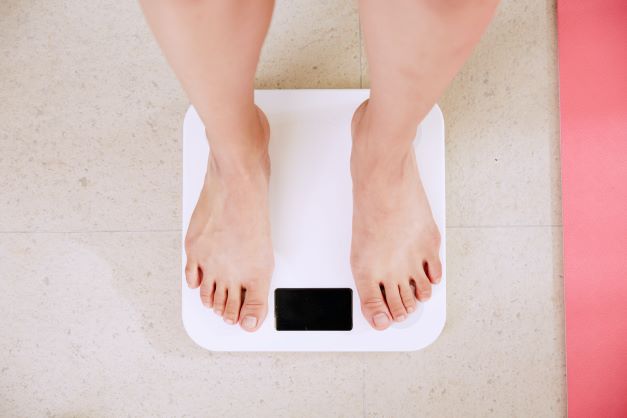Why am I Not Losing Weight? 5 Common Roadblocks to Weight Loss (And 1 You May Not Have Thought Of!)
You’ve been eating healthy and avoiding your favourite snacks all week long. You’ve even been exercising more. Eagerly, you step onto the scale to track your progress. Your heart sinks as you realise you haven’t lost even half a kilo. What gives?
1. You’re eating less, but not better.
Although reducing your calorie intake helps with losing weight, you may still struggle to shed kilos if you allow the bulk of your diet to be comprised of unrefined sugars, processed foods, and carbohydrates. Introducing more organic fibre (think: veggies and fruits), lean protein, and dairy into your meals and snacks will boost results while leaving you feeling fuller and more satisfied.

2. You’re drinking the wrong stuff.
When trying to make a healthy lifestyle change, you must remember to focus on what you’re drinking. Our bodies require lots of water, and those who drink more H20 will lose weight faster than those who don’t. Remember, too, that sugary drinks like soda and juice (even natural fruit juices!) contain many empty calories. Alcohol can also be a subtle foe.
3. You’re not exercising
When it comes to weight loss, proper diet is only half the battle. You can eat all the right foods, but the scale may refuse to budge if you’re not burning calories. Both strength training and cardio are essential to burning off excess calories and boosting your metabolism to lose weight more efficiently.
4. You’re eating too many calories.
One common pitfall of dieters is the belief that they can consume more calories because they are exercising more than usual. To avoid going overboard, it’s smart to keep track of what you’re consuming each day in a food and drink log.
5. You’ve got unrealistic goals and expectations.
In this fast-paced world, we all want instant and miraculous results. Unfortunately, that’s just not the way the human body works. Realistically, you should be aiming to lose 0.5 to 1 kilo (1 to 2 pounds) per week. Slow and steady progress is much safer and is more likely to lead to the formation of good habits that yield long-lasting results.
6. Your Thyroid Isn’t Functioning Properly
This one is less common than the first five problems, but it can significantly inhibit weight loss and overall health. As many as 12 per cent of people have problems with abnormal thyroid function, and the only way to know is through testing. This is significant because the thyroid produces hormones that provide your body with energy and allow for the correct functioning of your metabolism. With hypothyroidism, your body produces less of these hormones. It can result in the following:
- Decreased energy levels
- Weight gain/Difficulty losing weight
- Feeling overly cold
- Weakness
- Aches and Pains
- Hair loss
- Constipation
- Difficulty concentrating
- Changes to menstrual cycles
If you suspect that you may be dealing with hypothyroidism, it’s important to test your thyroid function right away and discuss the results with your doctor. Order your at-home test today.
Categories
- Awards
- Bacterial Vaginosis
- Blood Tests
- Cervical Cancer
- Chlamydia
- Condoms
- Covid-19
- Gardnerella
- Genital Warts
- Gonorrhoea
- Health and Wellness
- Hepatitis A
- Hepatitis B
- Hepatitis C
- Herpes
- HIV
- HIV (AIDS)
- Home Testing
- HPV
- Instant Testing
- MSM
- Mycoplasma
- News
- Non-Specific Urethritis
- PAP Smear
- Pre-Pregnancy
- Sexual Health
- STD Symptoms
- STD Tests and Screens
- STI Transmission
- Stigma
- STIs
- Swab Tests
- Syphilis
- Trichomonas
- Ureaplasma
- WSW
- Zika
